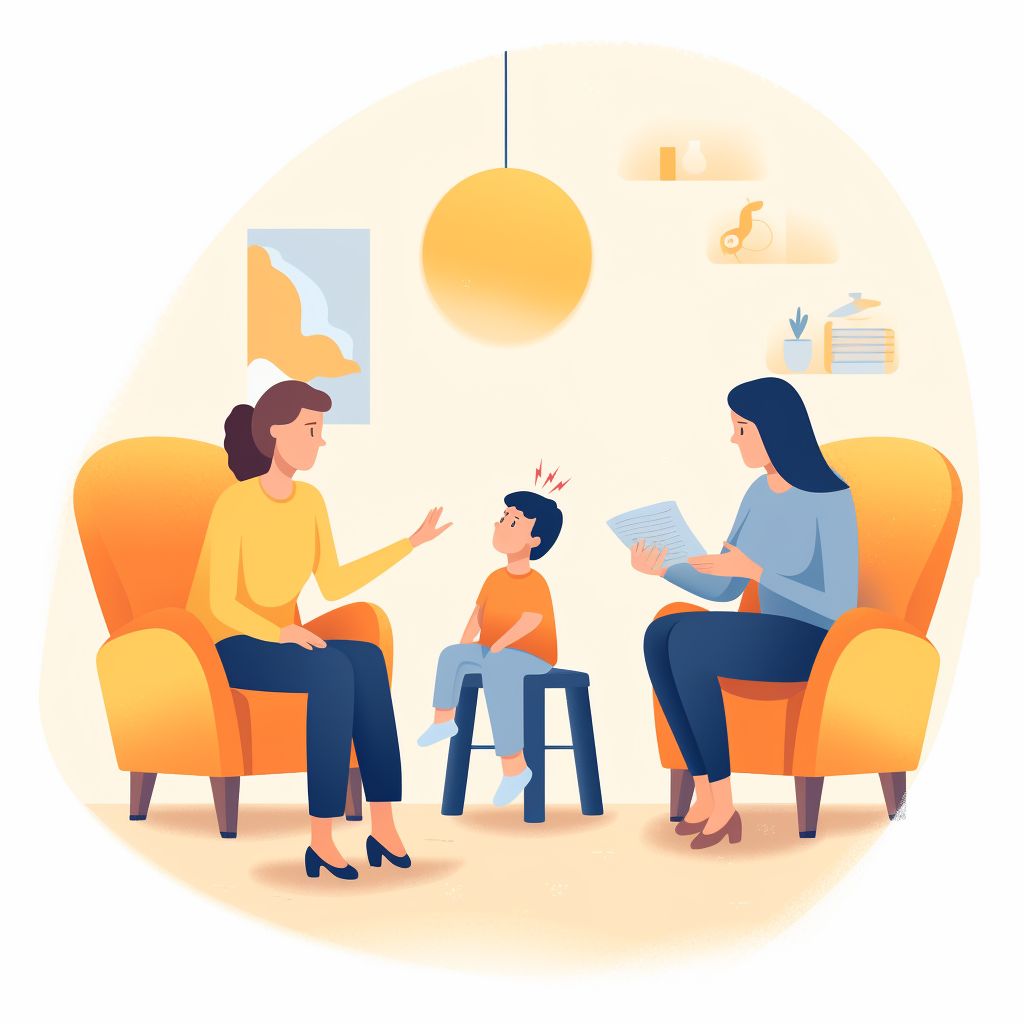ADHD Parenting Tips: Supporting Children with ADHD

One of the most common childhood disorders is ADHD, with symptoms often appearing in early childhood and persisting into adolescence and adulthood. ADHD in children can have a significant impact on their academic performance, social interactions, and overall well-being.
As a parent, you may be facing unique challenges while supporting your child with ADHD. It’s important to know that ADHD is not caused by bad parenting or a lack of discipline. It’s a real condition that requires understanding and support.
In this article, we’ll share practical ADHD parenting tips and ideas to empower you to support your child’s development, improve their focus, and overcome the challenges you face.
12 Practical Parenting Tips for ADHD
- Set clear expectations and rules
- Create a consistent daily schedule
- Break tasks into smaller steps
- Promote Healthy Sleep Patterns
- Praise achievements and positive behaviors
- Make time for special moments
- Communicate effectively with teachers
- Provide a quiet and organized study area
- Encourage self-expression and creativity
- Support social connections and friendships
- Seek professional guidance and support
- Connect with other parents of children with ADHD
Parenting Tips for ADHD

1. Set clear expectations and rules
Clearly communicate the expectations and rules to your child in a way they can understand. Use simple and concise language, and provide specific examples to help them grasp the concepts.
Establish consistent consequences for inappropriate behavior while maintaining a calm and supportive demeanor. Focus on teaching appropriate behavior rather than solely punishing negative actions.
| Discover: Echolalia in ADHD
2. Create a consistent daily schedule
A daily routine can provide a sense of stability and help your child better manage their time. Include regular times for meals, homework, play, and sleep.
Visual aids such as color-coded calendars, to-do lists, and labeled storage bins can assist your child in organizing their belongings and tasks. These visual cues can help them remember and prioritize their responsibilities.
3. Break tasks into smaller steps
Large tasks can be overwhelming for children with ADHD. Break them down into smaller, more manageable steps, and provide clear instructions for each step. Celebrate their progress along the way to keep them motivated.
4. Promote Healthy Sleep Patterns
Establish a consistent sleep routine. Help your child with ADHD by creating a regular bedtime routine that promotes quality sleep. Set a consistent sleep schedule, ensuring they go to bed and wake up at the same time each day. Create a calming environment in their bedroom by minimizing distractions and using soothing elements like soft lighting or relaxing music.
5. Praise achievements and positive behaviors
Recognize and acknowledge your child’s efforts and achievements. Offer specific praise when they demonstrate desired behaviors or complete tasks. Consider using rewards or incentives to reinforce positive behaviors. This boosts their self-esteem and motivates them to continue working towards their goals.
Support your child in pursuing activities they enjoy and excel at. Engaging in hobbies and interests can boost their self-confidence, provide a sense of accomplishment, and help them develop their strengths.
6. Make time for special moments
Don’t hesitate to talk openly with your child about ADHD. Help them understand that it’s not their fault and that there are ways to tackle the challenges it brings.
Carve out dedicated daily moments to chat and enjoy fun activities together, even if it’s just a brief period. During these cherished times, give your child your undivided attention, shower them with compliments for their positive actions, and let them feel your unwavering belief in their abilities.
Does your MBTI personality type put you at risk of ADHD?
Learn more:
ADHD and MBTI | A Comprehensive Overview

7. Communicate effectively with teachers
Stay in regular contact with your child’s teachers to understand their progress, address concerns, and work together to support their academic and social development.
8. Provide a quiet and organized study area
Create a designated study area that is free from distractions and equipped with necessary supplies. Help your child develop effective study habits, such as using study aids like flashcards or mnemonic devices and taking short breaks during tasks to prevent overwhelm.
9. Encourage self-expression and creativity
Create a safe and supportive environment where your child can express their emotions openly.
Teach your child calming techniques such as deep breathing exercises, guided imagery, or mindfulness practices. These strategies can help them manage stress, improve focus, and regulate their emotions.
10. Support social connections and friendships
Help your child develop social skills and build friendships. Encourage participation in activities that align with their interests, such as clubs, sports teams, or community programs. Practice role-playing social situations to enhance their social interactions.
11. Seek professional guidance and support
Consult with healthcare professionals, therapists, or counselors who specialize in ADHD to discuss the potential benefits and risks of medication for managing your child’s ADHD symptoms. They can provide valuable insights, strategies, and interventions tailored to your child’s needs.
12. Connect with other parents of children with ADHD
Seek support groups or parent networks where you can connect with other parents who understand the challenges of raising a child with ADHD. Online forums and social media groups can provide a convenient platform for seeking support. Share experiences, exchange advice, and find comfort in knowing you’re not alone.
Challenges of Parenting a Child with ADHD
Parenting a child with ADHD comes with its own set of unique challenges, and we understand how tough it can be. Your usual parenting rules and routines might not always fit, and that’s okay! It’s not uncommon to feel a bit overwhelmed and tired while trying to deal with your child’s impulsive behaviors and other ADHD-related quirks.

Children with ADHD may struggle with listening and following instructions. They might appear inattentive, easily getting distracted even during important conversations or tasks. Their impulsivity can lead to interruptions, speaking out of turn, or difficulty waiting their turn, which can sometimes be frustrating for others. You may find that they struggle to complete their homework assignments or forget to do their house chores and responsibilities, which can be a source of stress.
Remember, while applying parenting techniques for ADHD, it’s essential to be patient and accepting because children with ADHD have different brains and may struggle with impulsivity more than others. Modifying your approach and learning to manage their behavior can make a big difference. While medication might be part of the treatment, incorporating ADHD parenting tips and techniques is vital for their progress.
The whole family may need to adjust, and siblings might have mixed feelings, but with love and understanding, you can create a supportive and structured environment for your child. Don’t forget to take care of yourself too – parenting a child with ADHD requires compassion and consistency, so remember to be kind to yourself throughout the process.
HealWiser’s Last Piece of Advice
Remember that you are not alone in this journey. By seeking support, exploring effective strategies, and staying informed, you can deal with the challenges and joys that come with raising a child with ADHD. Embrace the unique qualities of your child, celebrate their accomplishments, and provide a nurturing and understanding environment.
With the right tools and guidance, you have the ability to empower your child and help them thrive. Keep in mind that both you and your child are constantly learning and growing. Let’s come together and follow these valuable ADHD parenting tips, as we build a brighter future filled with resilience, joy, and endless possibilities.
Sharing your experiences can provide valuable insights and emotional support. So…
Share your experience with Heal Wiser and others in the comments section below this post.





